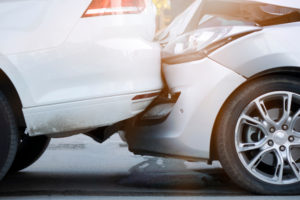What to Do After a Car Accident
 In the moments after a car accident, your mind may be racing with a million thoughts. You may be overwhelmed, but it can help to have a set list of steps to take in the aftermath of your accident. From the immediate steps you take at the site of the accident to your first visit to an accident and injury clinic, below is a guide to the most important things you can do after a car crash, whether you were at fault or not.
In the moments after a car accident, your mind may be racing with a million thoughts. You may be overwhelmed, but it can help to have a set list of steps to take in the aftermath of your accident. From the immediate steps you take at the site of the accident to your first visit to an accident and injury clinic, below is a guide to the most important things you can do after a car crash, whether you were at fault or not.
1. Stay Calm & Evaluate the Scene
You may feel shocked, stunned, or even panicked in the moments after a car accident. Your adrenaline may begin pumping, making you want to jump into action immediately. However, the best thing you can do is take a pause and a deep breath before beginning to assess the situation. First, you should see if you can identify any obvious injuries- remember that you may not feel all significant injuries right away because of the adrenaline, but you can look for anything visible and ensure you can move. It may sound hard to stay calm in this scenario, but it will help you move through the other steps more easily.
2. Get to Safety & Call for Help
Take a look around to see if you’re in a safe location. If it’s possible, you’ll want to pull your car into a safe space and turn on your flashers. Do not assume that anyone observing or the other driver will call 911- call as soon as you are safely able. Clearly communicate where you are, the severity of the accident, and the other vehicle with the operator so they can send the right team. Once they arrive, police officers will provide a record of the accident and paramedics will do a full assessment.
3. Exchange Personal & Car Information
While you may want to exchange either pleasantries or harsh words, the most important thing to do when you speak with the other driver is exchange information. Avoid discussing fault as much as possible. Instead, ask for the following information and provide yours:
- Name of the driver
- Insurance company and policy number
- Driver’s phone number
- Tag number
- Make, model, and color of the other vehicle
Some people like to call their insurance company immediately. If this happens, do not speak to the other insurance company and allow the police to assess the scene rather than declaring any fault.
4. Document the Scene
In addition to relying on the police, you should document your surroundings. Take photos of any damage on either vehicle, license plates, and any injuries you have. Make sure you get the police officer’s information and report number, as well as the contact information for any witnesses.
5. Collect & Report Information
Once you are home and have had some rest, you can compile all this documentation in one place. The more information you have, the more smoothly your insurance claim will go. When you call the insurance company, make sure you share all this information. You’ll also want to ask them for information about your coverage, the other driver’s coverage, and what potential outcomes there are for you. This can help you determine if you should file an insurance claim and what the process will look like. This may be specific to your state so be sure to get information specific to you.
6. Make a Doctor’s Appointment
Any serious injuries will be treated by the paramedics or get you transferred to a hospital. However, the most common injuries from car accidents can go unnoticed for hours or even days after the event. Whether you notice any symptoms or not, you should quickly make an appointment with a car accident doctor to be evaluated. How soon should you see a doctor after an accident, you ask? Many injuries can exist before you begin feeling pain, and early treatment is always preferable. A good rule of thumb is that if your car has sustained even minor damage, your body likely had too. You want to at least rule anything severe out, if not begin treatment quickly.
This is also an important step if you choose to file an insurance claim. An accident and injury clinic will be able to properly document your injuries and condition, provide medical records to insurance, and verify that the accident is related to these problems. A specialized accident and injury clinic will also be able to bill you in a way consistent with your insurance process.
If you have recently been in a car crash and are in need of an accident and injury clinic, contact Fox Integrated Health today. Our experts will perform a thorough evaluation and help you create a treatment plan that meets your needs.
